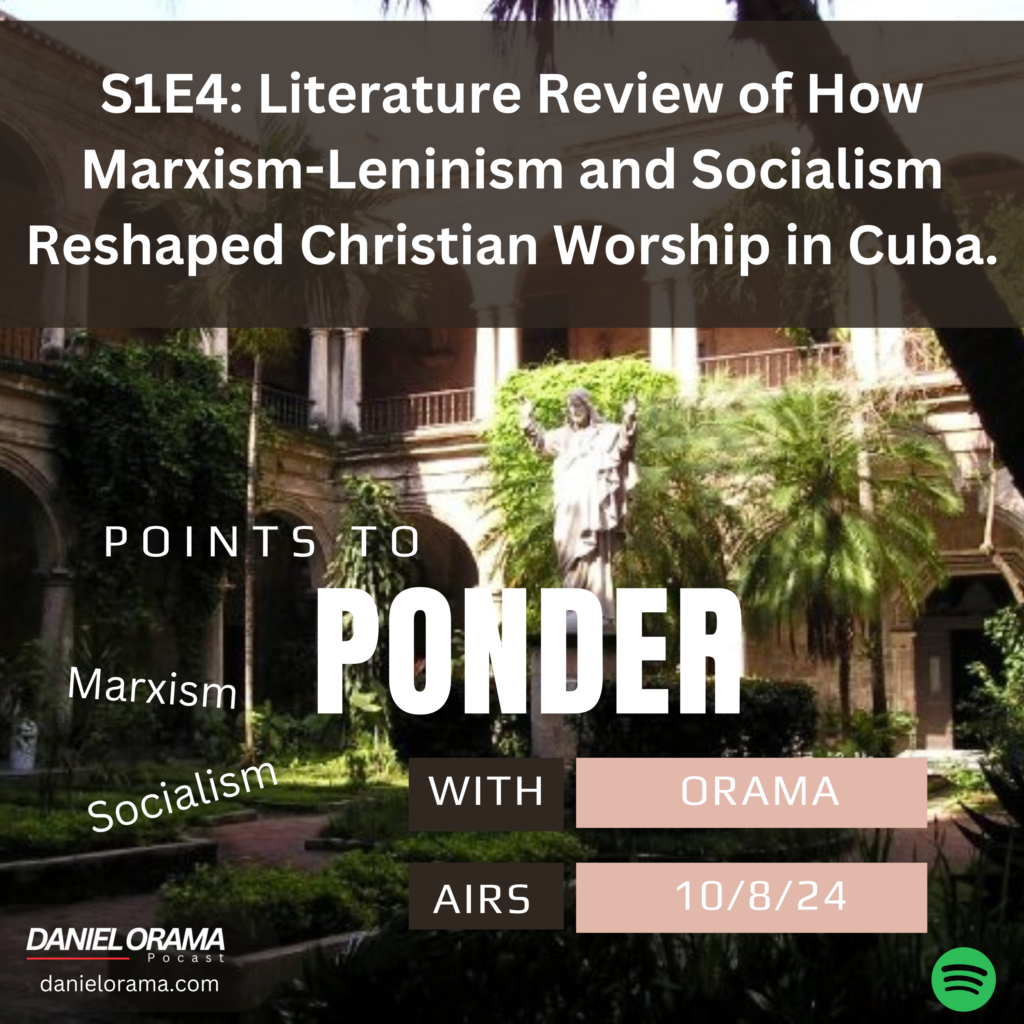Marxism and Socialism Against the Christian Church in Cuba.
Qualitative research seeks to comprehend people’s or assemblies’ experiences and the significance of their challenges. This approach involves asking questions, developing protocols (the official procedure or system of rules governing affairs of state or diplomatic occasions), gathering data in the person’s natural settings, analyzing data to identify common ideas, and interpreting the findings. The information format can be tailored to meet the specific requirements of the research.
This study’s qualitative research approach allows for a deductive, logical, historical content-based analysis. Creswell notes that “qualitative researchers seek to understand the context or setting of the participants through visiting this context and gathering information personally.”[1] It also allows for creating a concise report on the challenges the Cuban church faces in the 21st century. The research investigation will explore the historical, social, and cultural factors that shaped Cuba, their impact on the church, and how those same tactics are used in other countries such as the United States. The church can only exist by God’s grace against Fidel Castro’s Revolution or face imprisonment.
Click HERE to Listen to the Corresponding Podcast.
To gain insight into the impact of Christian worship in Cuba, it is necessary to conduct a detailed study of Fidel Castro’s mindset. This blog insight examines various sources that reveal his communist ideology, personal books, and interviews with him. This data will be the foundation for analyzing the text and assessing the researcher’s documentation and methodology. Under Castro’s communist regime, the church was considered counter-revolutionary, which resulted in its dissolution. In Religion in Cuba’s Socialist Transition, Aurelio Alonso states, “At the end of the conflict, however, institutional Christianity was left deeply wounded.”[2] The church may be left wounded, but Jesus said that the gates of hell would not prevail against His church.
The Parallels Happening in the United States Christian Church Today
Today, we are beginning to see the parallels in the United States. Many Christian churches have ideologies that do not align with the Word of God. You do not have to go very far to see the divisions and splits within the Christian church with denominations such as the Methodists and Presbyterian churches, the adage of divide and conquer. The enemy revels in seeing the church focus on their selfish desires over what the Word of God says. What are some of these desires? Several make decisions based on culture rather than the Word of God. What that does is place culture on the throne and remove God.
Click HERE to Listen to the Corresponding Podcast.
The Persecution of the Christian Church Continues
Many have and continue to persecute the Christian church in Cuba and abroad, and if you are listening to this right now, you still have a chance to repent of your sins. The reports of the destruction of church buildings are documented. I quote Baroness Cox and Benedict Rogers in The Very Stones Cry Out, “until, that is, 20 November 2007 when the Cuban authorities launched a massive operation to destroy the church building.”[3] Along with the destruction of churches, evictions of Pastors and their families from their own homes reveal another identifying factor of the persecution. As stated in The Stones Cry Out: “Pastor Alain Toledano and his family were evicted from their home, which was confiscated along with all their belongings.”[4] The efforts of the Cuban Government to demolish church buildings have profoundly impacted the lives and ministries of numerous families. What Fidel and the Cuban Communist Government carried out were grave sins against God, and for Fidel and others alike, it was too late.
God bless, and see you on the next one.
[1] John W. Creswell, Research Design, 8.
[2] Alonso, Aurelio. “Religion in Cuba’s Socialist Transition.” Socialism and Democracy Volume 24, Issue 1: Cuban Perspectives on Cuban Socialism (2010), 152.
[3] Baroness Cox and Benedict Rogers, The Very Stones Cry Out: The Persecuted Church: Pain, Passion and Praise. (New York: Bloomsbury Publishing, 2011), 26.
[4] Ibid.

